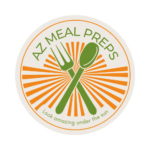Are All Proteins Created Equal? Our Top 5 Proteins List!
Are All Proteins Created Equal? Our Top 5 Proteins List!
Are all proteins created equal? Before we rank our top 5 protein lists, lets start off with plant based protein and compare it to animal based. Studies show that consumption of ounce equivalents of animal-based protein food sources resulted in a greater gain in whole-body net protein balance above baseline than the ounce equivalents of plant-based protein food sources. This is because of a couple of reasons, one is that the structure of plant-based protein differs to the animal as it lacks one or more essential amino acids the body requires. They also contain compounds that restrict protein metabolization like phytic acid and are especially pertinent when they are not cooked. Because of these reasons, we do not rank plant foods like tofu, and other veggies in these as we are not able to digest all of the protein like we are with animal-based foods. This is to NOT discourage vegetarians to get as much protein as they can through beans, tofu and protein powder as getting more protein, in general, will help increase your metabolism and will help strengthen strong bones.
Our list ranks proteins based on their protein usability, (meaning how much protein our body can digest from them once cooked) nutrient density, and practicality when implemented into your daily diet.
- Eggs: Eggs are one of the most essential foods when trying to pack on muscle and become healthier as they have 6 grams of protein per egg and the yokes are extremely nutrient-dense. Eggs are a 91% protein usability and are rich in iron, phosphorus, selenium, and vitamins A, B12, B2, and B5 and are one of the most nutrient-dense foods you can eat next to red meat. We rank it first however because of the practicality of eggs as you can add whole eggs to pretty much any meal to add more protein and egg whites to smoothies, drinks, and other foods to increase your protein intake as well.
- 2. Beef: ranks number two on our list as it is extremely nutrient-dense with iron, zinc, selenium, riboflavin, niacin, vitamin B6, vitamin B12, phosphorus, pantothenate, magnesium, and potassium. With a protein bioavailability of 80%, beef is highly digestible. The practicality of beef is great too as it comes in the ground and regular kinds and can be sprinkled in your breakfast and other meals quite easily for added protein.
- 3. Chicken: Chicken is a great source of protein that is high in vitamin b12 and has a 79% protein bioavailability. It ranks third in our list because it is extremely easy to cook as you can buy it in bulk frozen, thaw it in a microwave, and then cook it on a stove or air fryer right after and have it perfect every time. It is also one of the leanest forms of protein you can get and can be eaten more often than beef if you are looking to lose more body fat.
- 4. Bison, turkey, pork, and other quality animal products: Any other animal products are going to be a great source of protein as well. These foods did not make the list though because they are less widely available in grocery stores and are less practical than the previously listed foods.
- 5. Protein Powder: Protein powder is listed as 5 as some studies show it having as low of protein usability as 18%. Other studies show it has a 99% usability though so with how many companies are selling it now, that stat is just hard to find. From personal experience though, I know a lot of people have an upset stomach after drinking whey protein and this is a direct indication it is not the best digestible protein there is. It is also lacking in all of the quality nutrients that are listed in the foods above. With this being said, I would still recommend using it daily if it does not bother you as it is extremely practical and can be drunk in water.


